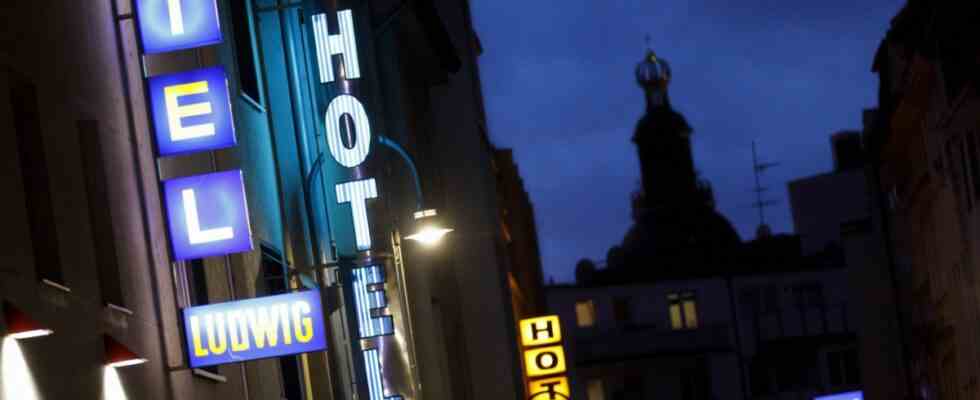Sometimes it’s two euros, sometimes eight euros per night – on more and more hotel bills there is a new item, the so-called energy flat rate. In this way, the companies pass on the high costs for gas and electricity to their guests. In a recent survey by the German Hotel and Restaurant Association, almost 40 percent of companies rated the cost development in the energy sector as “threatening their very existence”. Spending on electricity and gas has often more than doubled.
How much more expensive are overnight stays due to the energy flat rate?
This varies from house to house, sometimes it is five euros per person and stay, sometimes 2.50 euros per night and room, in luxury hotels it can also be nine to ten euros per night. Many houses point out right on the start page of their homepage that they add an energy flat rate to the room price. Meik Lindberg, managing director of “The Hearts Hotel” in Braunlage in the Harz Mountains, even decided to aggressively go public with a press release: “We didn’t just want to make our point of view visible within the industry,” he says.
He estimates the annual additional costs for heat and energy for his 65-room house at 200,000 euros, and he wants to offset part of this with the help of an energy flat rate of three euros per person and night. Without the surcharge, “all reserves would have been used up by March at the latest,” says Lindberg. At the same time, attempts are being made to reduce energy consumption by supplying heat from the cold store or by insulating the building – “but this also creates costs”.
The impression is that smaller, owner-managed houses in particular rely on the energy flat rate. According to Markus Luthe, General Manager of the German Hotel Association (IHA), there are still no figures on how many companies there are in Germany overall: “We only know of individual cases that have decided to take this step to counteract the exploding energy costs little to catch.”
In the case of hotel chains, charging an energy flat rate has so far been rather unusual. It is often more expensive anyway. Because of the high energy prices, inflation, the increase in interest rates and the increase in supplier prices, “room prices generally had to be adjusted accordingly for the time being,” says Sven Hirschler, spokesman for the Deutsche Hospitality hotel group, which includes the Steigenberger and intercity hotels.
Do hotel guests have to accept every price increase?
The guest only has to pay an energy flat rate or a room price that is increased for other reasons if they were informed of this at the time of booking. It is not permitted to add the extra costs to the overnight price at check-out: “The guest must be given the final price for the room before completing the booking,” says Karolina Wojtal, a lawyer at the European Consumer Center Germany in Kehl. Such a lump sum should not be hidden in the small print of the general terms and conditions. The legal basis is the Price Indication Ordinance, in all EU countries consumers can refer to comparable rules.
The legal situation for package tours is somewhat different. A subsequent price increase of up to eight percent is possible in principle, up to three weeks before the start of the trip, says Wojtal. However, strict criteria apply: Only higher costs for fuel and kerosene as well as port and airport fees can be passed on to the traveller, but not the expenses for electricity and gas in the hotel. And: Before booking, the tour operator must use a form to inform its customers that the contract contains a price adjustment clause.
“In practice, however, we rarely see package tour operators subsequently raise prices,” says Wojtal. The contingents for flights and hotels would be reserved for the long term, “the higher costs will probably only be felt in the next season”.
Why don’t the establishments simply increase the room rate?
An energy flat rate is “the more transparent solution”, says hotel manager Meik Lindberg: “If something changes in the cost situation or we get more financial support, we can react immediately.”
From the point of view of consumer advocates, it makes little difference whether increased energy costs are specifically reported in the form of a flat rate or added directly to the room rate: “It’s more of a psychological effect,” says Karolina Wojtal. The final price is decisive for the consumer, regardless of how it is determined.

